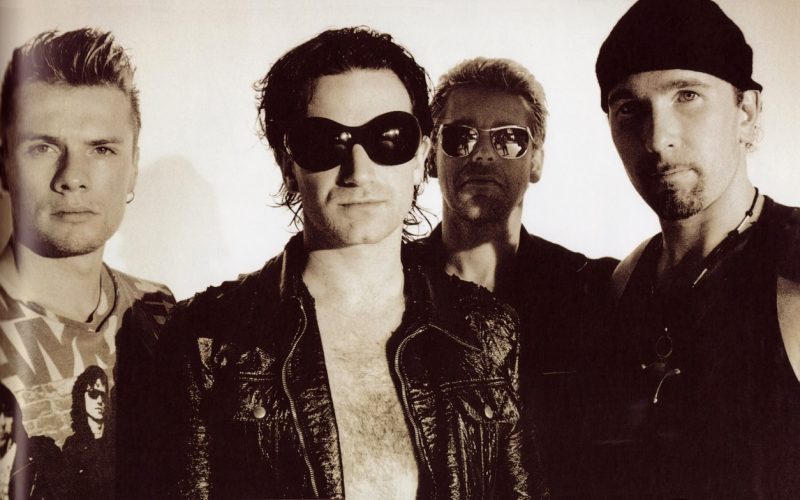Thirty years is a big milestone to reach. When you get to that point in your life, you have plenty to look forward to, but also much to reflect on. Having just turned 30 this past weekend, I figured it as good a time as any to write about my favorite albums from every year that I’ve been on this Earth. I left myself no other parameters but that. Today, we’ll start with 1988 to 1992. Maybe some of my old favorites will be brand new to you. Anyway, let’s get started!
1988: The Sugarcubes – Life’s Too Good
Not only did Life’s Too Good become an instant classic upon release, but it also put Iceland on the map in popular music. The band gave their own spin to the New Wave scene that swept over the U.S. and U.K. Listen to the record and you’ll hear influences of the Talking Heads, Berlin-era David Bowie and early U2. But it pushed the boundaries of those sounds further out than taken before, dabbling them with ironic humor as well. At the center of it all on this album is a ferocious, stunning vocal performance by Björk. You can hear her throwing everything into her performance, a raw display of vocal prowess that she rarely reaches for in her solo career.
https://www.youtube.com/watch?v=edmDN11BxCY
1989: Nine Inch Nails – Pretty Hate Machine
Everything that’s great about Nine Inch Nails can be found on Pretty Hate Machine. Rather than strictly following the industrial of bands like Ministry, Nine Inch Nails connected those heavy sounds with the grooves of Depeche Mode. It’s front-loaded with monster hits “Head Like A Hole” and “Terrible Lie,” songs that are essential to the NIN canon. But it’s when you dig deeper that you find the gold. “Sin” is a driving, mechanical beast, its synths fleet-footed and distorted guitars roaring. “Sanctified” is propelled by the funkiest bass line Trent Reznor’s ever written. “Something I Can Never Have” hits emotionally harder than “Hurt,” with its icy piano and barely-held together vocals. Even if you don’t think you like Nine Inch Nails, try this album. You may change your mind.
https://www.youtube.com/watch?v=r6Ja781txF0
1990: Depeche Mode – Violator
If you ask anyone to name a Depeche Mode, chances are high that they’ll mention one of the two mega-singles from Violator, “Personal Jesus” or “Enjoy the Silence.” In the public eye, those two tracks stand miles above the rest of their discography. They will be the centerpiece of the band’s legacy. But more than two reasons why Depeche Mode’s seventh album is so well-regarded. It’s found in the balance between the organic and electronic, with Martin Gore incorporating guitar and live instrumentation more than ever before. Additionally, the band were simply writing at an unprecedented level. Artists would kill for songs as strong as “World in My Eyes” or “Policy of Truth.” More underrated are the slow-burners like the sleek “Halo” or the nighttime bubble of “Waiting for the Night.”
1991: U2 – Achtung Baby
This is my favorite album of all time. It’s when U2 went some a great band to a legendary one. This is the record where the band took everything they built up in the 1980s, threw it away and started again. The result is a distorted, industrial, groovy, out-of-left-field masterpiece that embraces and suffers at the hands of hedonism. It’s right there in danceable “Even Better Than The Real Thing” and “Mysterious Ways.” It’s in the fuzzed distortion of “The Fly” or the woozy propulsion of “Acrobat.” But at the same time, U2 wrote some of their most direct, emotionally-naked songs, like “Love is Blindness” and “One,” the latter among the greatest songs ever written. With Achtung Baby, U2 found the freedom to throw off all constraints and follow their muse wherever it led. Since then, it’s served them damn well.
1992: R.E.M. – Automatic for the People
Funnily enough, R.E.M. had aimed for the follow-up to Out of Time to be a guitar-filled rock record. But their songwriting led them down a different path, towards the quiet Automatic for the People. This is an album for the twilight hours, full of tracks about aging, mourning and loss. By stripping back to sparse instruments and melancholy strings, the record turns the focus even more onto Michael Stipe’s reflective lyrics. Sure, “Everybody Hurts” is a bit cheesy in its mopiness. But other tracks embrace those wistful or somber sides of life beautifully. This is especially true of opener “Drive” and the closing duo of “Nightswimming” and “Find the River.” But R.E.M. also threw in a light touch with “The Sidewinder Sleeps Tonight” and “Man on the Moon.” That taste of sweetness helps to make this album a classic.
